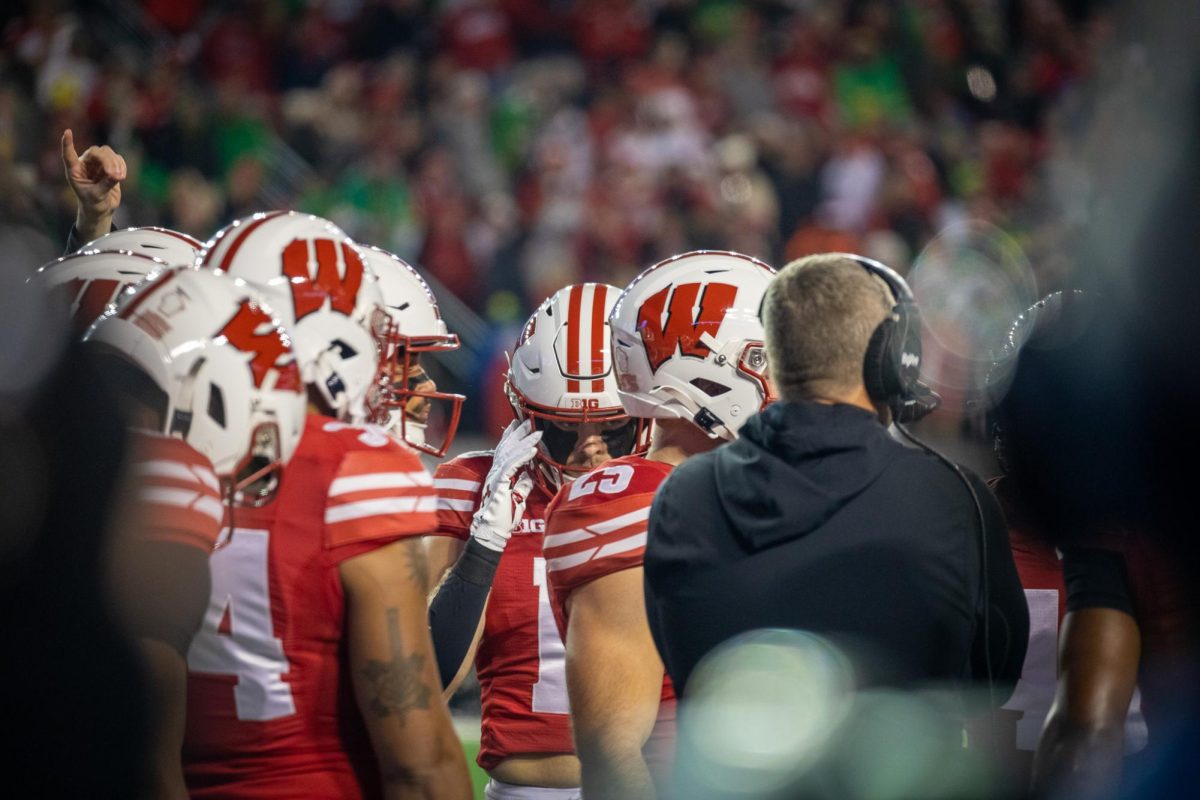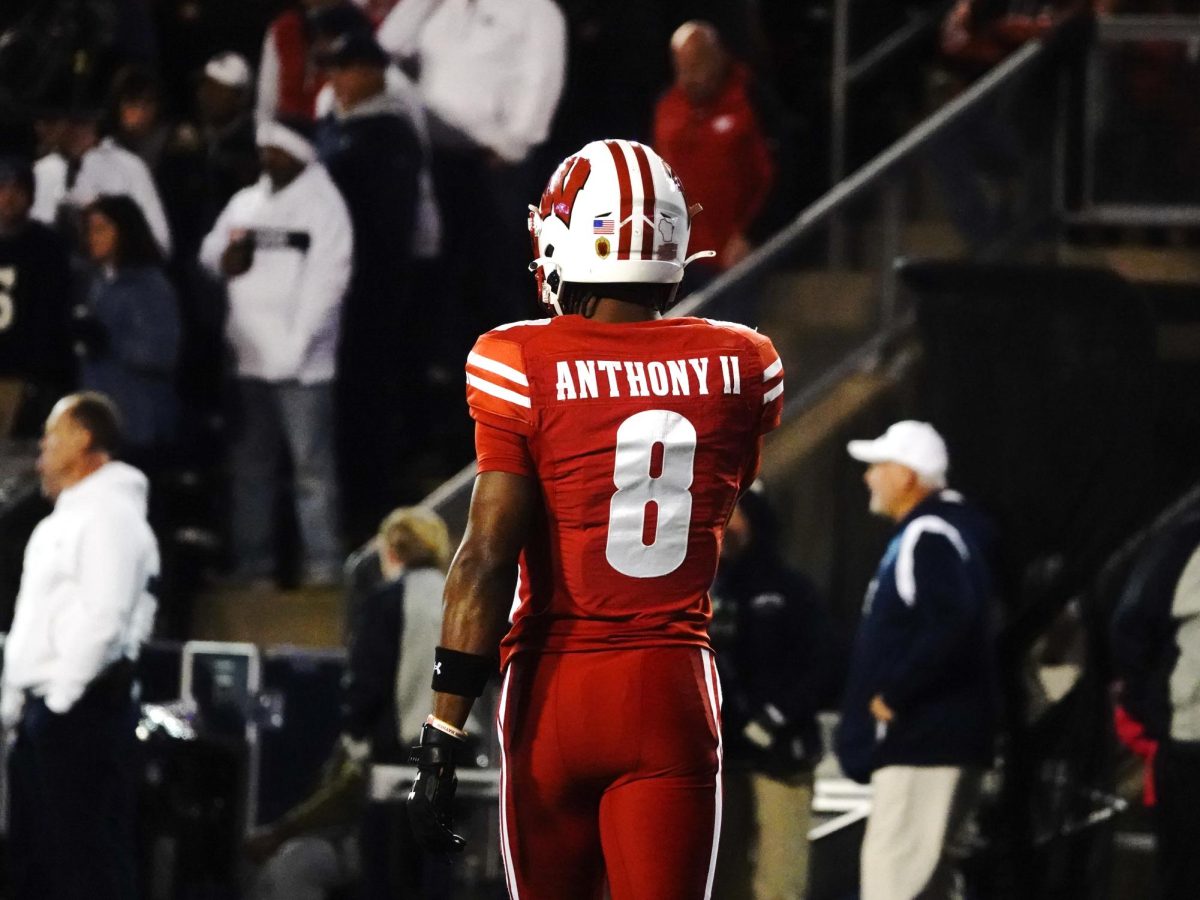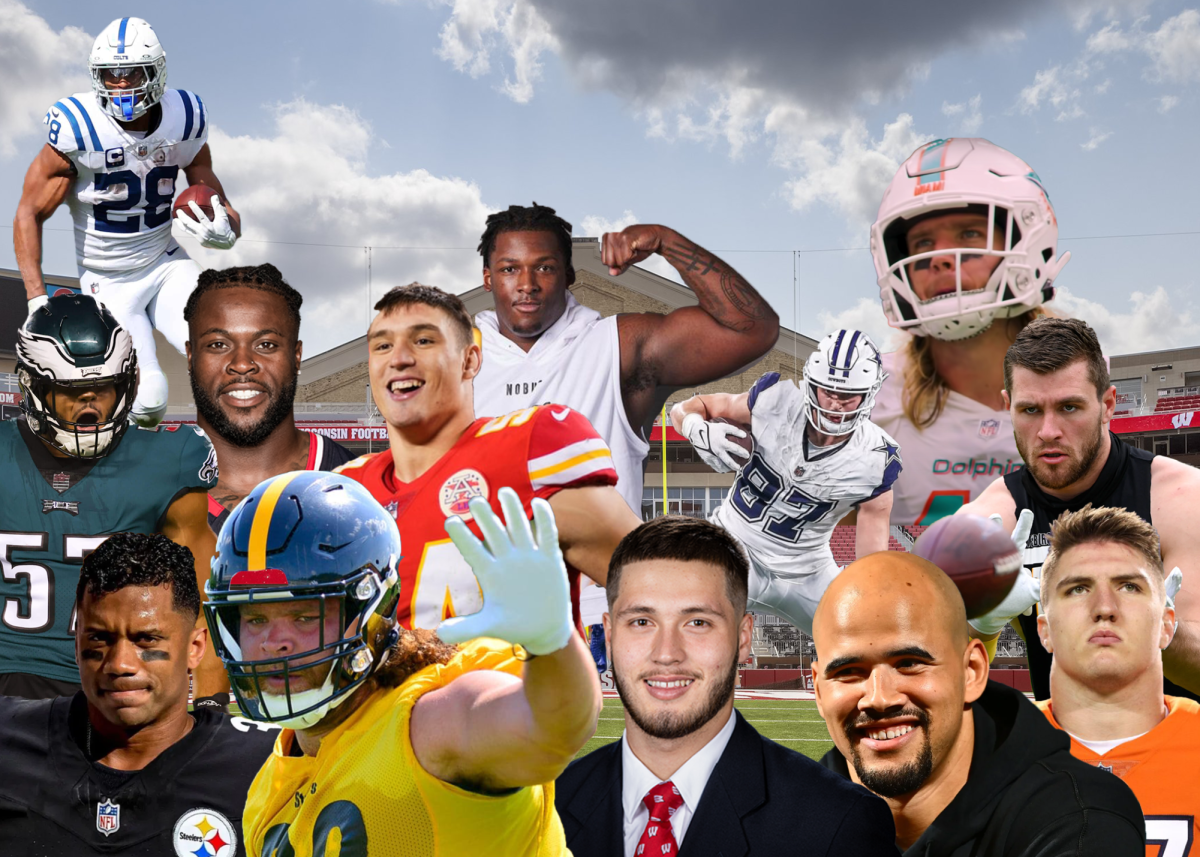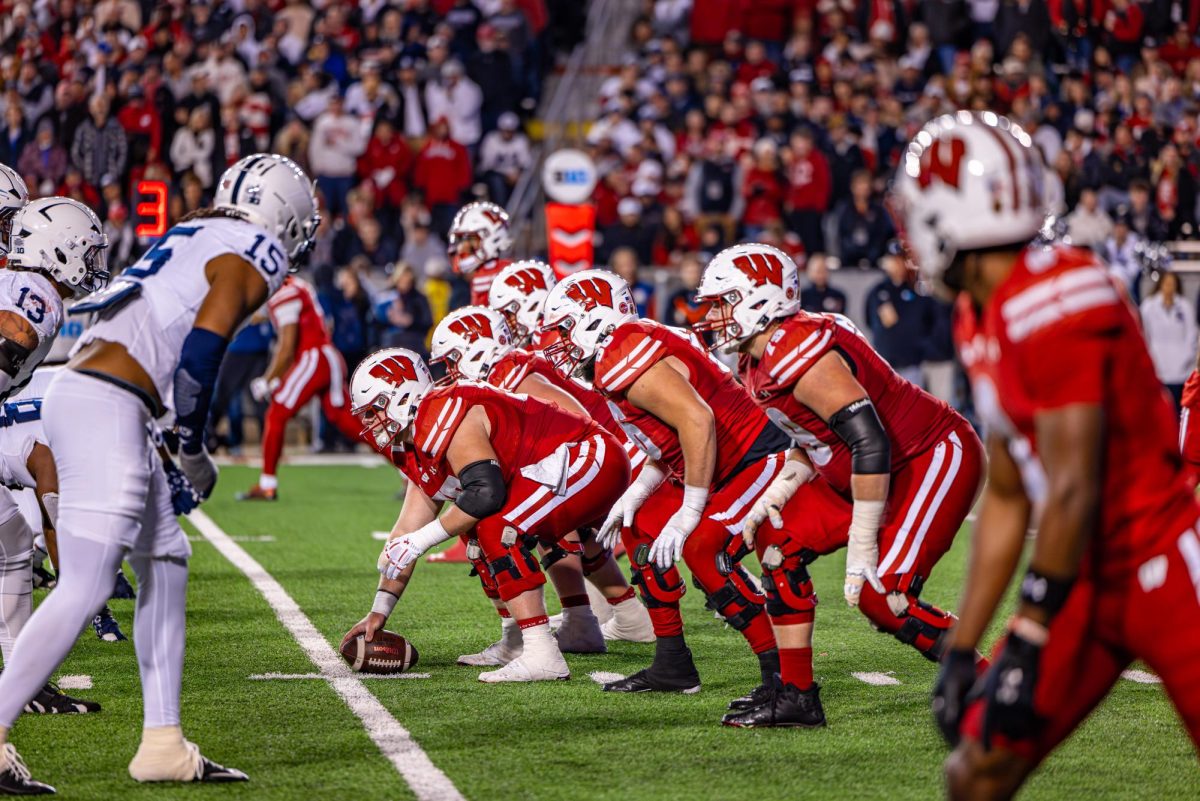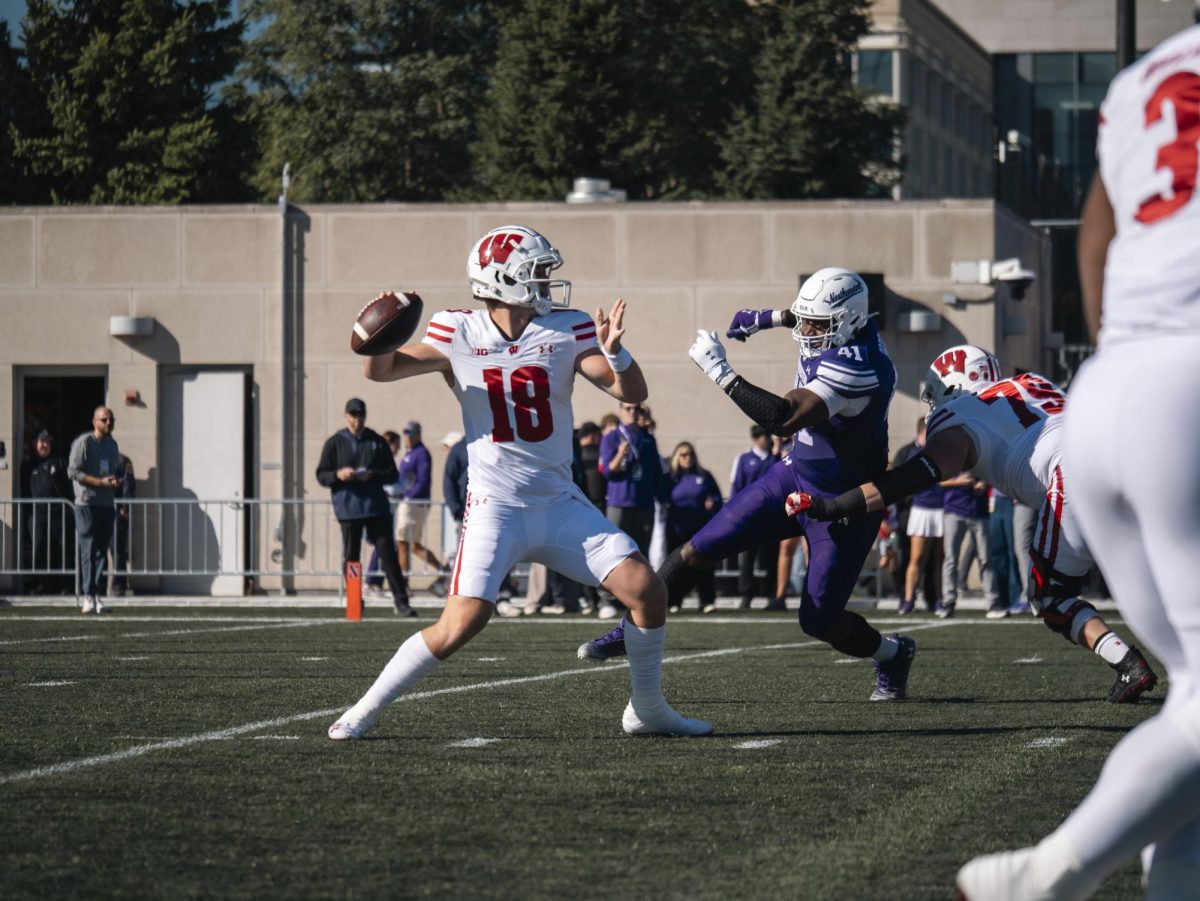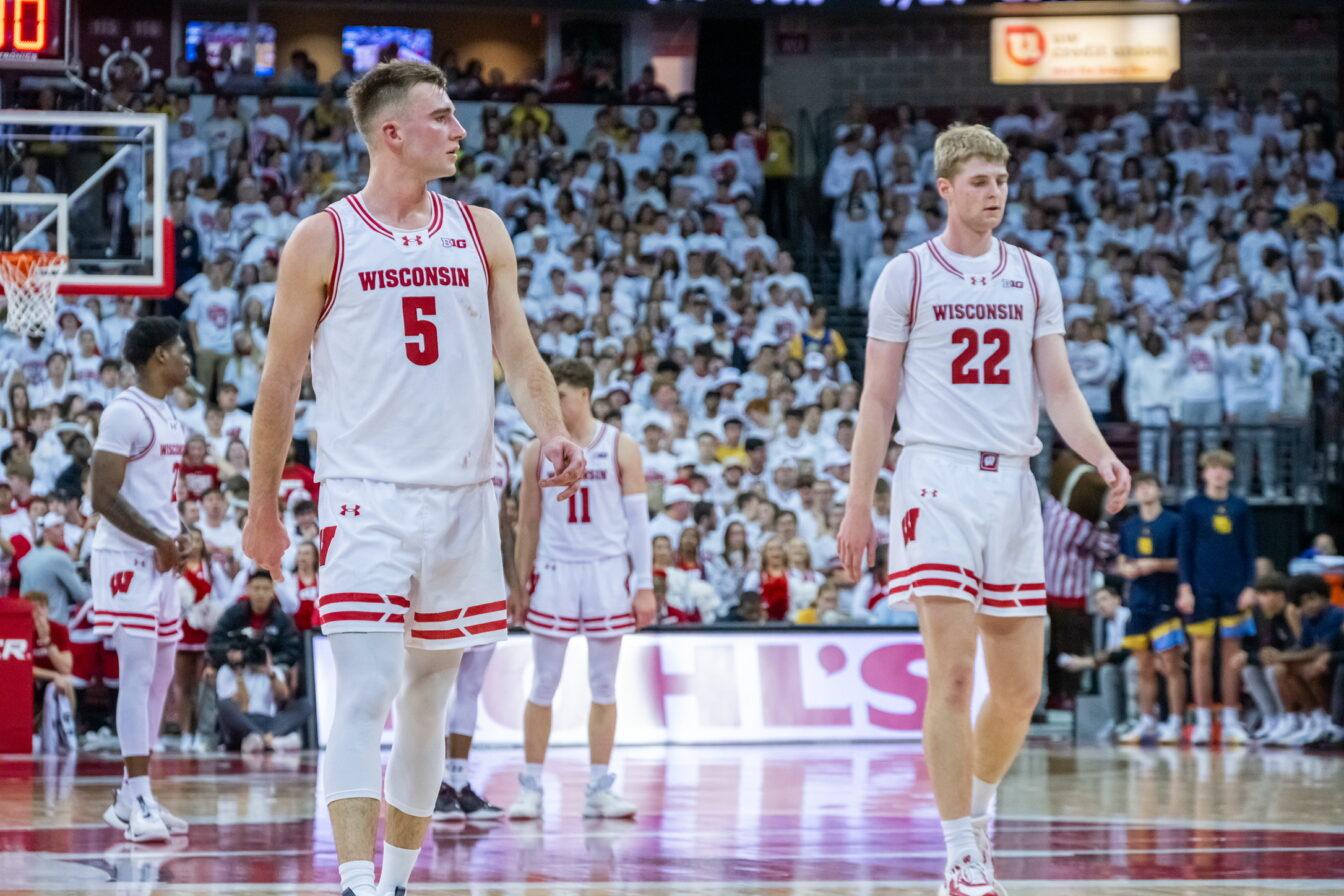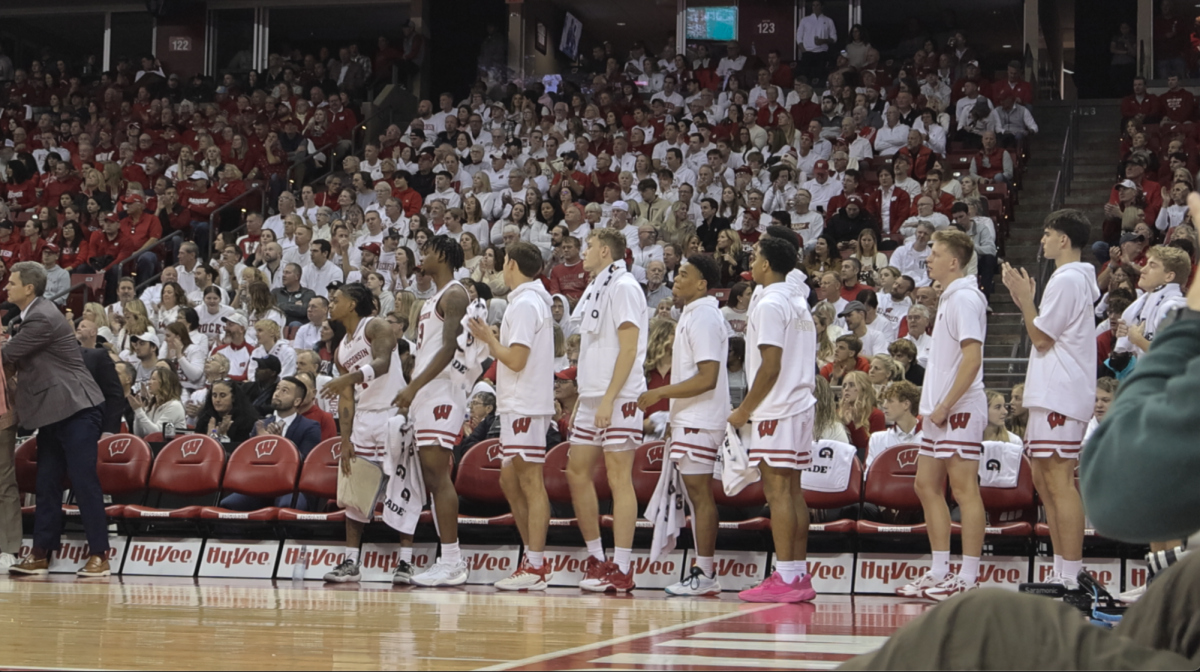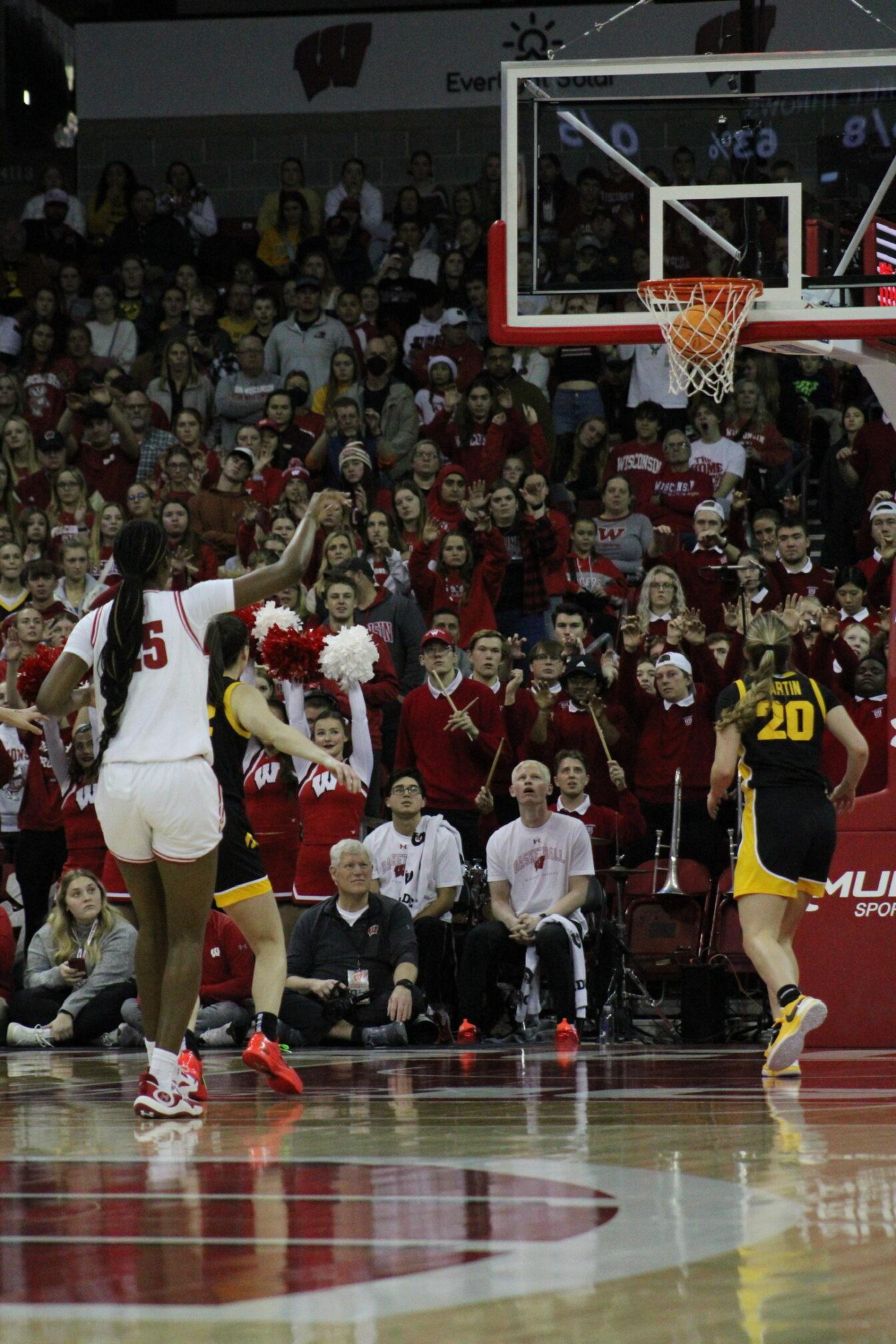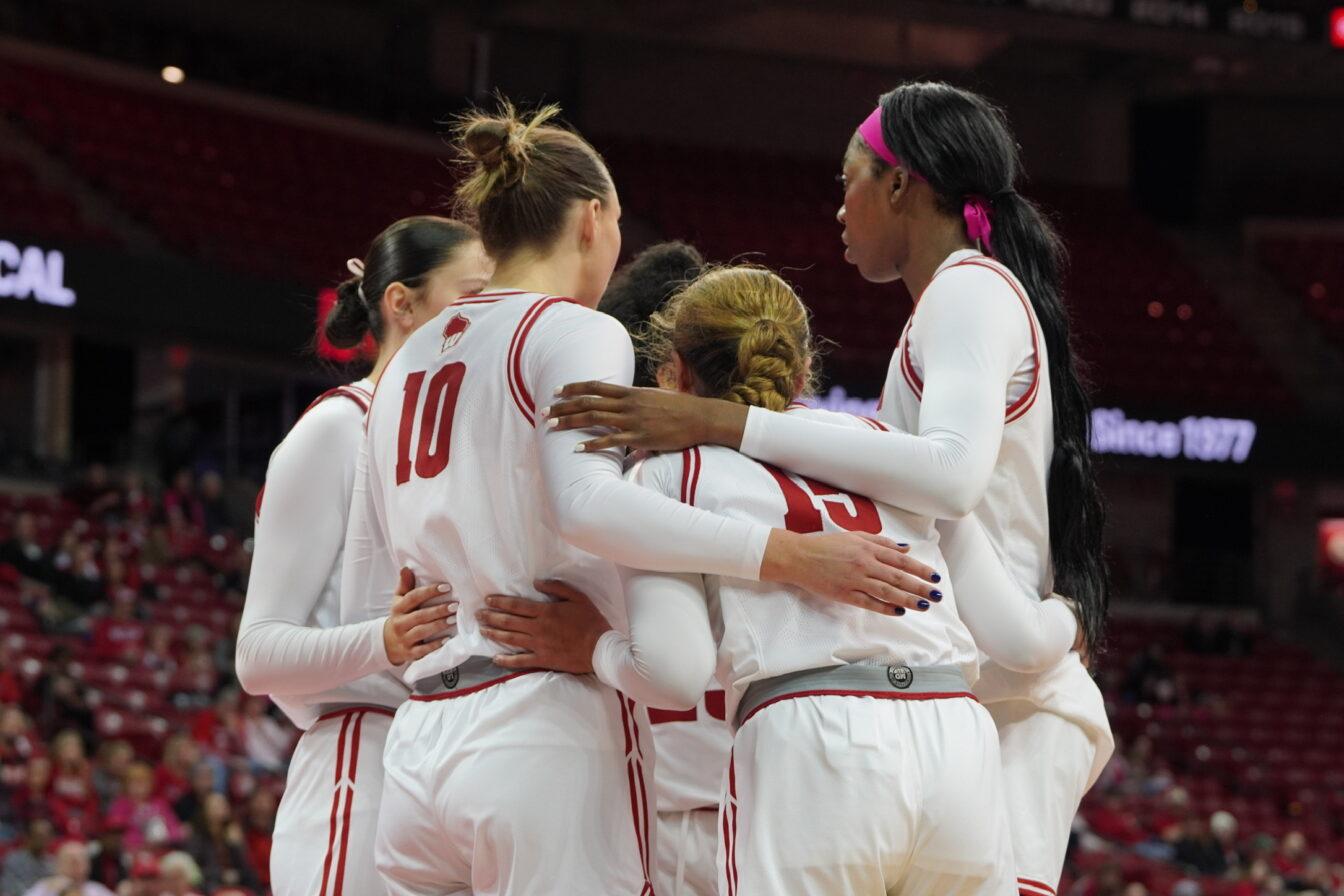
After meeting Travis Frederick for the first time, three things immediately stand out. The first is his sheer size. As an offensive lineman for the University of Wisconsin, Frederick stands 6-foot-4 and weighs 330 pounds. As big as that seems, those figures place him near the average of a typical UW lineman – after all, one of Wisconsin’s youngest linemen, redshirt freshman Rob Havenstein, is listed at 6-foot-8, 345 pounds.
Second is Frederick’s beard. Forming from the sideburns of his fairly standard close-cut haircut, Frederick’s beard matches his light brown hair but extends away from his jaw bone to form a scraggly, seemingly unkempt coat of facial hair. In post-practice interviews, it’s normal to see beads of sweat – more than a few – stream down the beard as he speaks. Along with his large stature, Frederick’s beard makes him naturally exude the stature of a Wisconsin offensive lineman.
The third distinct trait becomes clear once he’s talking. Answering even the most generic of clich?, jargon-filled football questions, Frederick takes his time speaking, talking with his hands as if he’s using them to craft his words.
It all makes sense, really. When he’s not mauling opposing defenses and opening running lanes for Wisconsin’s vaunted rushing attack, Frederick’s laboring away in Engineering Hall or any number of the university’s labs, working on projects involving computer processors, pipelines and so much other foreign technobabble that’d you’d wonder, how does he have time for Division I football – let alone as a major contributor on the offensive line of the nation’s No. 10 team?
“I’m working on a project for a digital design and synthesis class; we’re designing an integer divider co-processor that hooks up to a processor and a serial bus that works in between that,” Frederick said after an evening practice in mid-October. “The higher-up you get, the more projects you have. We’re designing a pipeline processor for another one that would go in your computer, basically a five-stage pipeline processor.”
Frederick, a redshirt sophomore and a double-major in computer engineering and computer science at UW, grew up in Sharon, a town of slightly more than 1,500 people 90 minutes from Madison. Developing a clear interest in math and science, Frederick’s academic background formed organically.
“I like to play with Legos; I like that kind of stuff that’s inventive stuff and investigative,” Frederick said. “I think that falls into the engineering field. I like the hands-on part of it.”
After graduating early – talented high school recruits often enroll in college early to gain an extra semester of training at the Division I level – from Big Foot High School as a National Honor Society member and first-team all-state offensive and defensive lineman, Frederick initially explored aerospace engineering before turning his attention toward computers. He says he is not “one of those crazy mechanical engineers.”
“I had known about him since he was a freshman in high school, so it wasn’t one of those deals where he just pops out of nowhere,” UW’s gruff, media-averse offensive line coach Bob Bostad said. “He’s mature beyond his years, there’s no doubt about that.”
Frederick came to UW in 2009, one year after a once-promising season that saw the Badgers rise as high as No. 8 in the national polls, but was marred by a midseason four-game losing streak and was capped with an embarrassing 42-13 dismantling at the hands of the Florida State Seminoles in the Champs Sports Bowl.
Enrolling early ultimately was beneficial for Frederick, who began his career as a Badger by becoming the first true freshman in school history to start the season-opener on the offensive line. Frederick played center that game, squarely in the middle of the offensive line and responsible for snapping the ball to the quarterback, and started four of the five games he appeared in that year. Frederick’s career as a member of arguably the nation’s most respected offensive line, as well as in the classroom, was off to about as strong a start as he could’ve expected.
“[Enrolling early], you have a month or a couple of months that you’re in school before you’re actually starting on [football] stuff,” Frederick says. “That kind of eased me into it a little bit. As for coursework, it gets heavier as you get older. That kind of eases you into it, as well.
“When I was taking calculus and chemistry and physics, I thought that it was a really tough course load. Then it kind of evolves again and you see, OK, well this is it and I’m sure it’s going to continue to evolve. You kind of evolve with that.”
This is the first in a two-part series. The second piece will run in Thursday’s paper.


